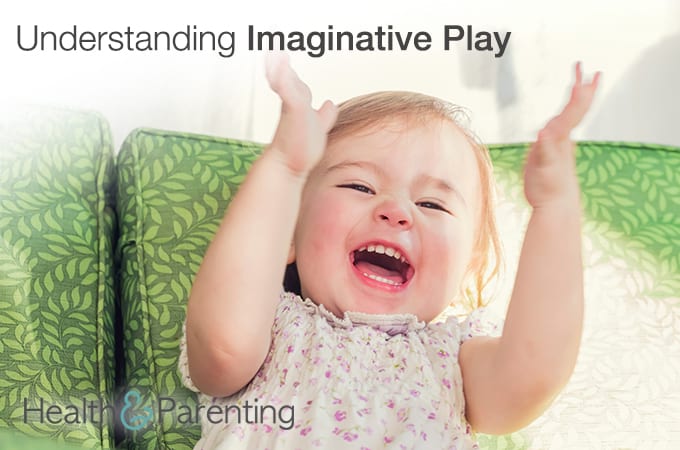As your little one approaches that exciting first year milestone, you have probably started to notice he or she is beginning to play pretend more often than ever before. Maybe they are pretending to talk on the phone or to use keys to unlock doors. Perhaps they are cradling their babies just as you do for them, or wanting to feed stuffed animals pretend food from their play kitchen.
At this age, most children are starting to recognize the purpose of various toys. They know that toy trucks are for pushing and crashing, and that toy dolls are for nurturing and loving. They are also learning to mimic what you do, which is actually part of what sets up the foundation for their imaginative play in the months and years to come.
How you play with your little one is also part of how that foundation is built. They will learn how to imagine and pretend from you. So even if you propose a pretend tea party and they don’t seem to quite understand what’s happening just yet, or if you pretend to be a puppy, and they laugh and giggle but don’t join in themselves, that’s okay. They are just now gathering those building blocks for imaginative play. And the more you engage in it yourself, the more they will pick up on.
So turn that cardboard box into a pretend car. Make animal noises when you see a horse or cow in the book you’re reading before bedtime. Allow your baby to pretend feed you instead of the stuffed animals. And always be on the lookout for ways to turn everyday objects into tools for play. For instance, that empty paper towel roll is perfect for a makeshift microphone or telescope.
This type of imaginative play is so important for your child’s cognitive and social development. Remember, your little one is at a stage where he or she is learning through play, and pretending is a great way to fire off different areas of the brain and build an awareness of the world around them. Imaginative play is one of the core building blocks for creativity, with your child learning how to express the cognitive flexibility required for creativity already.
In the years to come, this imaginative play will also be a great way for your little one to explore the emotions and thoughts they may not be able to readily put into words, which can give them an outlet for expression that all of us desperately need.
The fact that your child is starting to engage in imaginative play is an exciting milestone. So encourage it, and get down on the ground beside them to be a part of it!
Written by Leah Campbell, infertility advocate, adoptive mama, writer and editor. Find me @sifinalaska on Twitter.
This information is not intended to replace the advice of a trained medical doctor. Health & Parenting Ltd disclaims any liability for the decisions you make based on this information, which is provided to you on a general informational basis only and not as a substitute for personalized medical advice. All contents copyright Health & Parenting Ltd 2016. All rights reserved.










